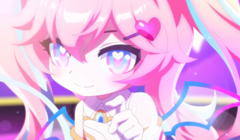In the late hours of a tranquil night, Darim, a dedicated animator in South Korea, eagerly shared a trailer for a character from the popular game MapleStory, proud of her creative contribution. However, joy turned to horror as her post was met with an avalanche of vitriol, including death and rape threats from young male gamers. They perceived a seemingly innocuous hand gesture made by the character as a provocative feminist symbol—a signal indicative of a much larger societal issue.
The backlash was instantaneous. Messages flooded in, filled with derision and calls for her termination from the animation studio. One particularly disturbing note read, "You've just sabotaged your job." Just hours after the trailer was posted, the gaming company chose to retract it and issued an apology, capitulating to the raging online mob.
This incident is not an isolated occurrence but rather part of a disturbing pattern of online witch hunts aimed at women expressing any semblance of feminist ideology in South Korea, where misogyny runs deep. Such hostile campaigns also amplify fears among women, who now think twice before identifying as feminists in a country marked by the largest gender pay gap among OECD nations.
Particularly in the gaming sphere, young male players have increasingly targeted female workers like Darim, seeking proof of perceived feminist sentiments and launching swift campaigns to ruin their careers. "They find any indication, and the hunt begins," stated Minsung Kim, a gamer turned advocate for those victimized by such harassment. Kim argues that this organized backlash signals a troubling empowerment of anti-feminist individuals who seek to silence women speaking out.
While Darim was ultimately able to retain her position, the threats and societal pressures have left many women in the industry feeling vulnerable. The pervasive fear of unwarranted harassment stems from a backlash against the feminist movement that gained traction in the mid-2010s when women began protesting against sexual violence and other forms of discrimination. This fear of retribution has quieted voices of those seeking equality within the professional realm.
In a further chilling example of this backlash and the real-world impacts it can have, Jigu, an unrelated woman, was violently attacked on account of being perceived as a feminist. Her assailant aggressively confronted her, linking her short hair to feminist ideals. The court’s decision to classify this as a misogynistic attack signals a significant acknowledgment of the real dangers women face in their daily lives for their appearance or beliefs.
Widespread views held by many men, fueled by radical online rhetoric, have started to infringe even further into the workplace, where women face harassment or negative implications for identifying as feminists. Societal movements opposing feminism within South Korea are increasingly being emboldened, often resulting in serious repercussions for women reluctant to openly advocate for their rights.
Despite Daram’s ordeal sparking outrage and a subsequent investigation into her case, the fear of backlash persists. As these online witch hunts gain traction, experts and advocates agree that the need for protective legal reform is crucial. Currently, there exists no comprehensive anti-discrimination law protecting women from losing employment due to their feminist views.
The circumstances surrounding these events symbolize a significant block against gender equality, placing women at a distinct disadvantage in society. Nonetheless, organizations and advocates like Minsung Kim have expressed a commitment to dismantling these anti-feminist structures through collaboration and by standing firm against rampant discrimination. As victims like Jigu transform their tragic experiences into empowerment, a renewed determination to challenge these societal setbacks emerges.




















